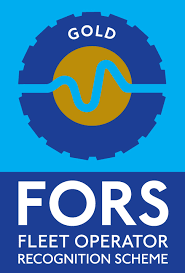01135348006
Case Studies
Real Life Examples
Let us share some real-life examples of where Fleet Transport Consultants has helped and aided our clients, we have an excellent track record and ensure satisfaction every time. We will never leave our clients to fend for themselves, we are with them every step of the way. The following aspects differentiate us from other businesses in this field.
Prompt Service, we are on your side within 24 Hours
Bespoke solutions that fit your operational and business needs
Instant Peace of Mind, we can provide instant expertise and support
Deploy Industry Approved Solutions and Best Practice
Provide Workable Solutions with Integrity, that Satisfy the DVSA
CASE STUDY I
Support with Public Inquiry
A service provider company in Leeds employing circa 20 staff and a Vehicle Operator Restricted Licence for 5 vehicles with no margin, with a single operating centre, which was the hub for all administration and HGV activity. As it was a restricted licence, the company was not required to have a transport manager and the Managing Director was the named Vehicle Operator Licence holder. Unfortunately, due to other business interests, the MD appointed another manager to handle all operational affairs of the business. The new manager attended Operators Licence Awareness Training (OLAT) course, but for whatever reason, the new manager did not get a grasp of the Vehicle Operator responsibilities, and all manner of bad habits and management negligence quickly set in, which included driving without a card, no vehicle card download, DDI and DDR being nonexistent and although the vehicle PMI (Pre-emptive Maintenance Inspection) were happening well, record keeping was shocking and oversight was negligible.
Two DVSA officers visited the business unannounced and verified all the above-mentioned failures and more. The MD realised the seriousness of what had happened and had no choice but to dismiss the manager for negligence. The operator was asked to attend a Public Inquiry and the MD asked for help from us. We quickly took charge of the situation and worked with the MD and his team to develop a recovery plan that could be rapidly implemented and presented to the Traffic Commissioner.
We supported the MD in preparing a credible recovery plan and genuine mitigations, which were presented at the Public Inquiry. The Traffic Commissioner was convinced that the operator had tripped up due to multiple reasons, the PI resulted in the curtailment of 1 vehicle for 8 weeks, which although was a strict restriction for the operator, they used this reprieve to build a complaint operation. We supported the operator every step of the way, not only with a recovery plan but also with training, awareness, operational support and Transport Manager duties.
The operator is now a compliant business working towards a Bronze Fleet Operator Recognition Scheme (FORS).
CASE STUDY II
Replying to a Desk-Based Assessment Questionnaire (DBAQ)
A service-based business in Wakefield with a Restricted Vehicle Operator Licence for 7 vehicles was sent a Desk Based Assessment Question (DBAQ) to reply to within 14 days. The DVSA has recently, especially post-covid, adopted this method of remote assessment. This type of assessment is detailed, and every minute of the 14 days timescale has to be spent wisely to reply to the questionnaire with accompanying evidence.
The DBAQ consists of 17 major areas, with each section consisting of multiple questions, each section requires a documented proof, which has to be sent with the reply.
The above company was shocked when they received the dreaded email, giving them 14 days to reply. They contacted us, and one of our transport managers immediately went to the business's office and worked with the team to reply to the request.
Subsequently, the DVSA officer in charge of the investigation replied after 2 weeks with a report, this report invited the operator to provide further proof or clarification of where the DVSA officer felt the business was failing. Our Transport Manager gain supported the business, and the reply was sent within 2 days.
CASE STUDY III
Changes to O'Licence & Implications
"A recent case highlighted how important ongoing compliance is. A small company needed to expand its fleet by just two vehicles to deal with demand. The application was submitted and this resulted in the usual request for information about digital downloads, vehicle maintenance schedules etc. As a result of their shortcomings with their vehicle and driver's data, they had to have a full investigation by the DVSA which led to a request for submission of all data for the last 12 months, a three-month investigation and audit and a one-month suspension of their operator's licence."
We, The FTC, were able to start assistance that afternoon and provide remote assistance within the hour. The process was simple, we started by addressing the request from the DVSA and then moved into general compliance, the downloading of driver cards and vehicle data. We built a picture of where the weaknesses were and started to deliver on ensuring the company "was doing what it needed to do".
In our experience, we find that it is not companies not wanting to, or bothering to do what they have to do but, that they simply didn't know. That is where our experience and expertise come in. We're here to help you.
Many companies require emergency assistance, a request from the DVSA comes through the door or the driver and vehicle are subject to a roadside check and then an investigation is opened. Operators have the risk of losing their licence hanging over them and all of a sudden compliance is the most important thing. We can move quickly and in most instances, we can provide instant support. Let's make this a selling point. Many auditors etc. that I speak to have to book appointments with clients and this all takes time when the customer is waiting for assistance while the days are ticking away with requests for data. We can do it faster.
